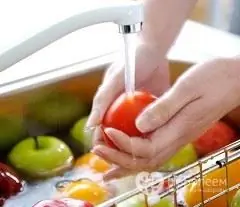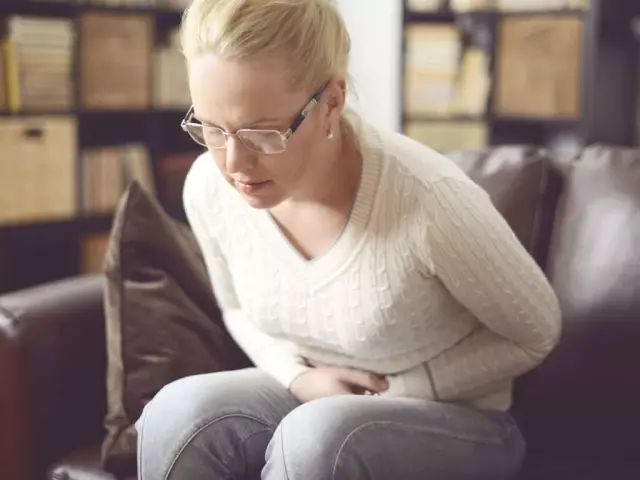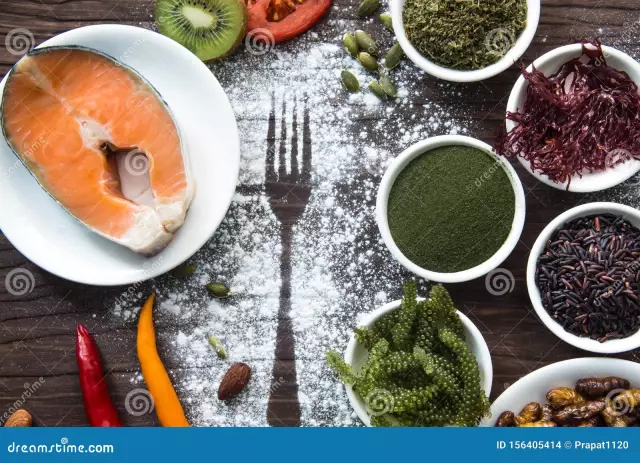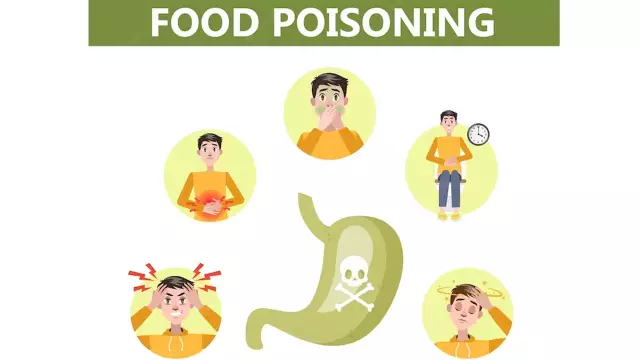- Author Rachel Wainwright wainwright@abchealthonline.com.
- Public 2023-12-15 07:39.
- Last modified 2025-11-02 20:14.
Food poisoning - causes, symptoms, treatment

We all know what kind of a terrible beast this is - food poisoning. In this article we will talk about it in more detail, find out the causes of its appearance, the main symptoms and how to deal with it.
Causes of food poisoning
The causes of food poisoning are quite simple - food. However, it can be difficult to determine which particular product caused it.
Together with food, bacteria and microbes enter the human body, which, in fact, cause poisoning. In addition, poisonous chemicals in foods are often the cause of food poisoning.
Let's see what foods are easiest to poison?
- Fruits and vegetables. These products can be attributed to the highest risk group in terms of the frequency of poisoning. Poisoning is especially common in summer. These products contain residues of chemical compounds and fertilizers that we used to grow them (pesticides, pesticides). Sometimes the cause of poisoning can be improper storage. From the heat, vegetables and fruits deteriorate very quickly and become a source of dangerous bacteria and microorganisms, which, when they enter our body, cause poisoning.
- Meat. Primarily, meat can cause poisoning if stored or cooked improperly. On improper storage of meat (for example, outside the refrigerator), pathogenic microbes multiply very quickly. This is especially true in relation to chicken meat.
- A fish. Eating rotten or low-quality fish can very often cause food poisoning. Here it is important to follow the rules for storing fish, and it also does not hurt to know the cooking technology of this product (for example, smoked fish). It is important to know that in the process of decomposition, very toxic substances are released from fish, which can cause not only poisoning, but also cancer.
- Mushrooms. Mushroom food poisoning is one of the most severe. Sometimes the count goes literally for minutes. Unfortunately, it happens that mushroom poisoning leads to the death of a person. This often comes from ignorance of the types of mushrooms. The fact is that many poisonous mushrooms are very similar in appearance to edible ones. And it is quite easy to make a mistake, especially if you do not have deep knowledge in this area. However, even edible mushrooms can cause poisoning if they are harvested in ecologically unfavorable areas. For example, near large manufacturing plants, railways or motorways.
- Milk and fermented milk products. With long-term storage of dairy and fermented milk products outside the refrigerator, they become a source of staphylococcus.
- Conservation. Yes, even home preservation prepared by a very clean hostess can cause poisoning. The fact is that there are a number of bacteria that multiply in the absence of air, that is, in the jar. Watch carefully, and if you see that the lid from the inside of the jar is rusted or swollen, do not eat food.
- Non-vegetable products. The main danger here lies in the incorrect manufacturing technology of such products, as well as in improper storage. Violation of the integrity of the packaging, the expired shelf life, the use of low-quality raw materials - all this makes the use of these products rather risky.
Now I would like to dwell a little more on the rules for storing food. Indeed, most often it is we who break this rule. Remember how often you forgot to put borscht or soup in the refrigerator in the summer? And the salad that we leave on the table instead of putting it in the refrigerator? All this creates ideal conditions for the development of pathogens in food, which ultimately lead to food poisoning.
Also, the cause of the disease can be an elementary non-observance of hygiene rules during cooking. You should always wash your hands before preparing food. All other factors that cause poisoning simply pale in comparison with such slovenliness.
Symptoms of food poisoning
Most often, the first symptoms of poisoning appear already a couple of hours after the pathogen enters the body. Everything is individual and depends on the type of pathogen and its amount. The most common symptoms of food poisoning include:
- abdominal pain;
- nausea;
- vomiting;
- diarrhea;
- chills;
- increased body temperature;
- body aches;
- pallor of the face;
- thirst.
Treating food poisoning
If you have all of the above symptoms, then you have food poisoning.

So, it is necessary to be treated.
- Step one is to try to figure out the reason. Think back to all the foods you ate the day before. Check the rest of the family for signs of poisoning. After you have identified the cause of the poisoning, you need to get rid of it. Get rid of all foods that you think could be causing food poisoning.
- Step two - calling an ambulance. If you are feeling very unwell, then it is not advisable to heal yourself. The doctors will give you a gastric lavage or give you a laxative if you do not have diarrhea. They will also provide you with some kind of pain reliever.
- Step three - taking medications. First of all, with food poisoning, Smecta should be taken. Adults can take it in a dosage of up to three sachets per day, and children - one sachet per day. Currently, for food poisoning, as well as for severe alcohol intoxication, modern sorbents are used, one of which is White Coal. The drug effectively absorbs toxins and removes toxins, but at the same time does not remove useful substances necessary for the body. What is especially worth noting is that White Charcoal is a "concentrated" sorbent and instead of a handful of black charcoal familiar to many, you can drink only 1-2 tablets of white.
- Step four - eating well after food poisoning. Diet is an integral part of the poisoning treatment. It is necessary to ensure that the body does not become dehydrated. So drink plenty of regular still water (at least three liters a day). It is better to eat steamed food, and the first few hours after the poisoning, you should not eat anything at all (and you will not have time to eat). When the "hurricane" in the stomach has subsided slightly, you can drink weak green tea with homemade crackers. You can also drink rosehip infusion. If after tea with crackers you do not feel worse, you can eat some oatmeal or drink chicken broth with potatoes. It is recommended not to return to your usual diet for at least a day after food poisoning, so as not to provoke a relapse.
Unfortunately, food poisoning is a fairly common phenomenon in modern life. For prevention purposes, it is recommended to follow the rules of hygiene, monitor the shelf life of products, know the technology of their preparation, however, no matter how much we would like it, we will not be able to completely avoid the risk.
Found a mistake in the text? Select it and press Ctrl + Enter.






